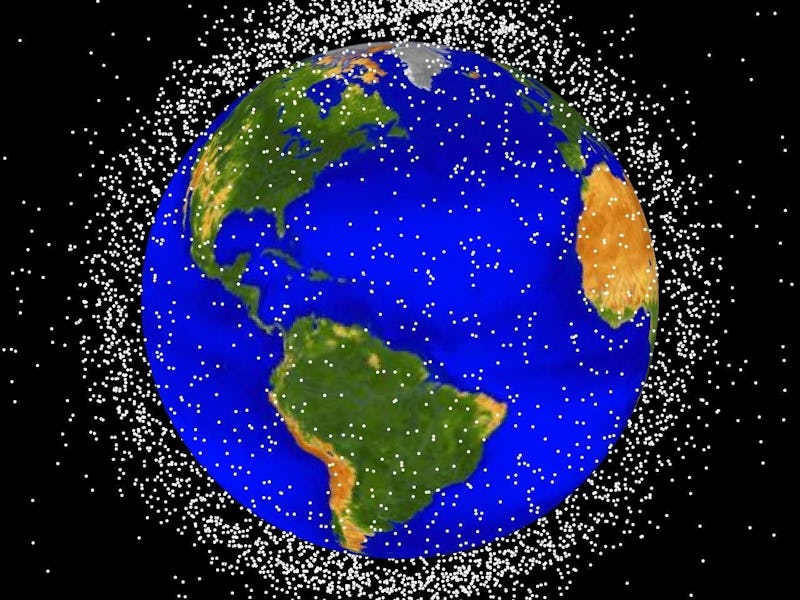The United States needs to find a way to play nice with China and Russia in space even in times when Earthly relations are strained, American military officials urge. The space junk problem — half a million small pieces of debris orbiting the planet at speeds up to 17,500 miles per hour — threatens all space-faring nations and demands a concerted effort.
“We need to be able to operate in space both to advance our state of technology and eventually get the human race off this planet onto another planet,” said Winston Beauchamp, the deputy undersecretary of the Air Force for space, at a defense summit last week. “We can’t do that if we have to try to fly through a shell of debris.”
Space debris suffers from a classic tragedy of the commons. All countries with satellites or space labs would benefit from cleaning up the mess, but everyone would prefer that someone else do the dirty work.
The space junk is mostly small, but even something the size of a paint chip could threaten a satellite if it hit the wrong spot. Some of it is remnants of defunct satellites, but there’s plenty of natural debris out there as well. It’s difficult to keep track of, and harder to get rid of. Various organizations have suggested blasting it away with laser beams, capturing it with an orbiting waste bin, or pulling it towards Earth so it burns up in the atmosphere.
The Air Force only recently took over operational control of the Space Surveillance Telescope, which tracks orbiting debris, from the Defense Advanced Research Projects Agency. It’s clear the military wants to nip any potential diplomatic issues in the bud.
“There is an erosion of some of the commonly accepted standards and norms, and there’s concern about that as folks around the world have tried to find advantage, find seams,” said Beauchamp. “That’s part of the reason why we want to codify our norms and behavior in space because it is such an important domain, not just for us but for humanity.”
“Everything is about not having a war extend to space,” said Rear Adm. Brian Brown, head of the Navy Space Cadre, at the summit.
